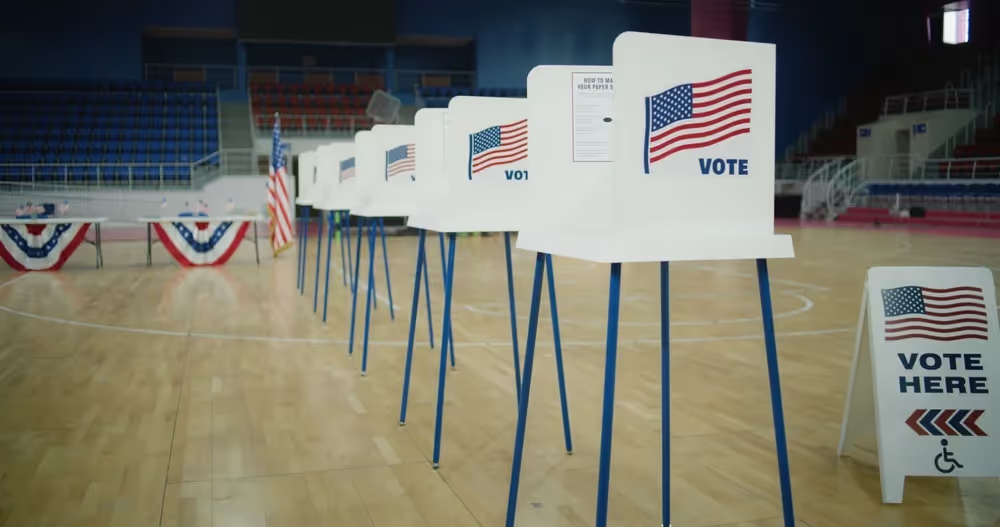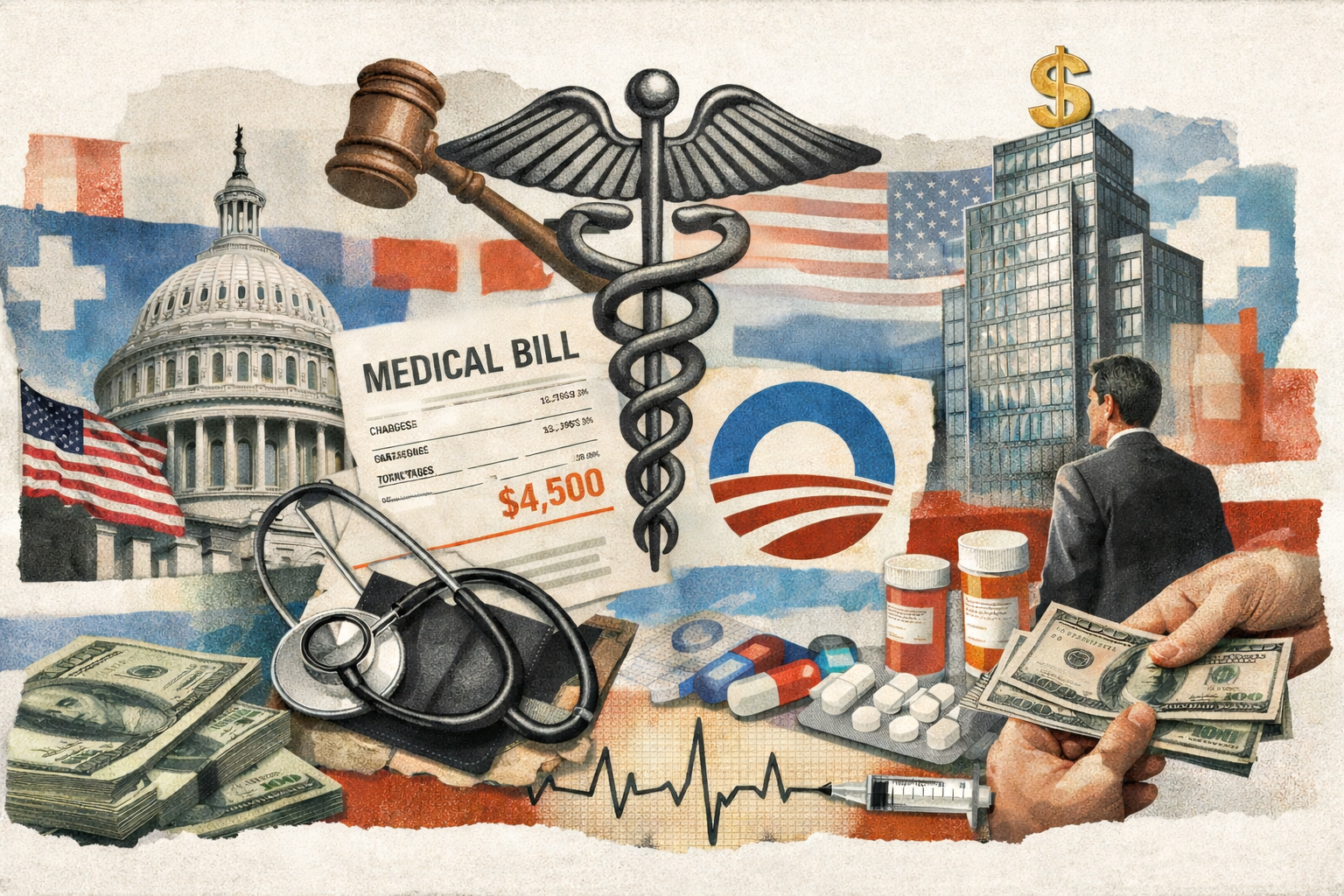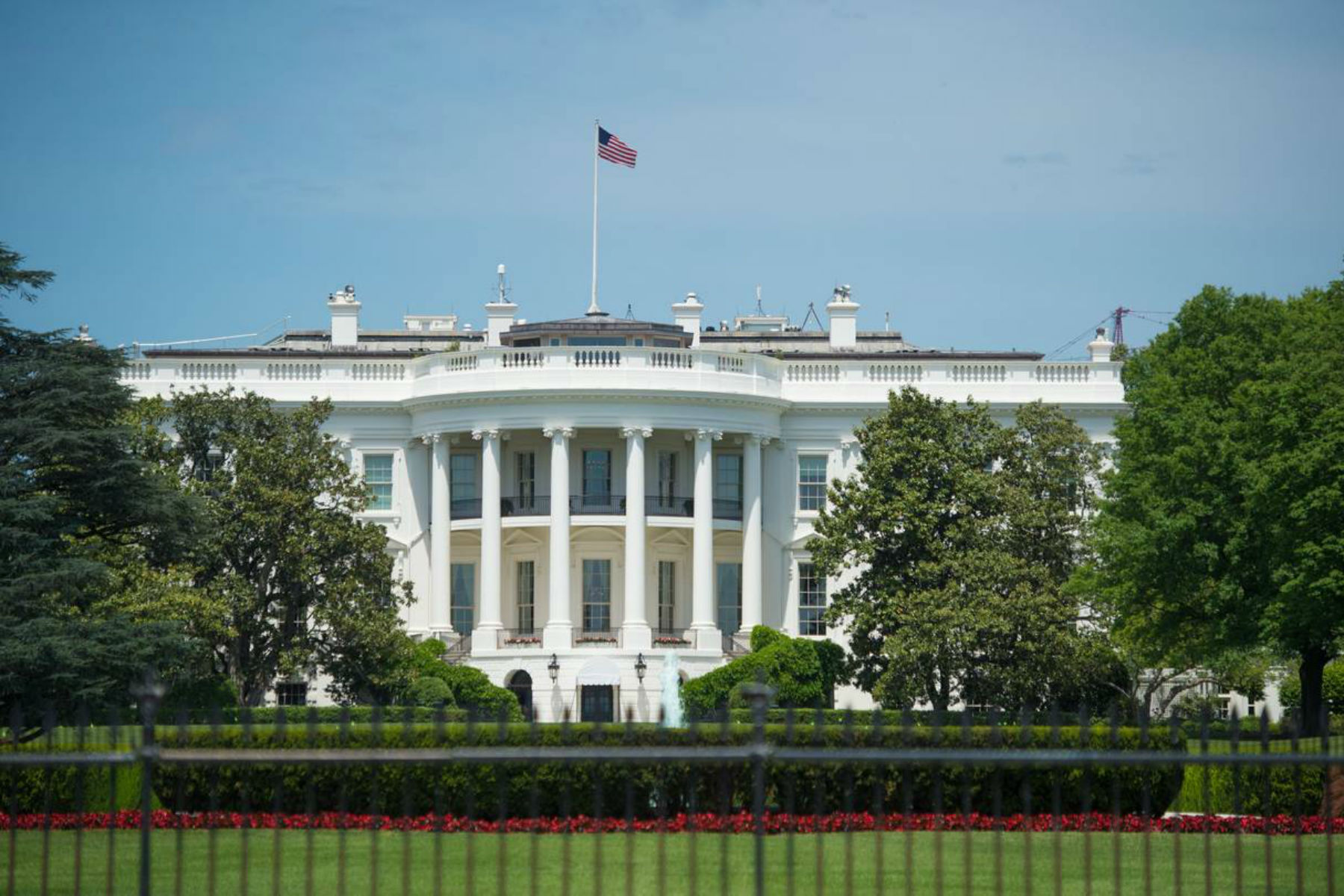
How One Simple Reform Can Improve Voting and Reduce Political Extremism
Give voters the ability to vote against a candidate instead of only for a candidate.
Ranked-choice voting is proving to be a bust in America. But we shouldn’t give up on trying to improve our democracy. An alternative voting method exists that would constitute a much better reform, one that would give voters the ability to express their preferences more accurately. It will also help reduce growing political division in America.
Now, not just before the next election, is the appropriate time to begin discussing it.
My proposal is shockingly simple: Give voters the ability to vote against a candidate instead of only for a candidate. This sounds trite, but it is a transparent way to give voters a more meaningful voice in the democratic process by increasing the precision with which they can convey their political preferences.
When there are three or more candidates on a ballot, a voter might not prefer that candidate A is elected over B or C as much as he prefers that C not be elected regardless of who else might be elected. This is no small thing since we often feel more strongly about what we don’t want than what we do want.
Here is how it could work. To the right of each candidate is a “for” circle and an “against” circle. For each race, the voter can blacken in only one circle for that office. When the votes are tallied, the number of against votes is subtracted from the number of for votes for each candidate. The winner is determined by who has the most votes from what’s left over.
Why is this better? If a voter prefers to express a positive preference for a given candidate, then this option changes nothing – vote for that candidate as before. But the option would now exist for a voter to express opposition to a given candidate above all else.
The benefit of being able to vote against candidates is largely unappreciated because in a two-person race, it is irrelevant. A vote for A is effectively a vote against B. In two-person races, the present system already allows voters to oppose a particular candidate above all else by voting for the other.
But if there are three or more candidates and your strongest desire is to keep C from being elected, you can’t directly vote against C. In this case, the best you can do to express your desire is to vote for A or B, but it is impossible to know which of these votes will most likely work most effectively against the election of C. Moreover, the greater the number of candidates, the weaker a vote for anyone other than C will express a preference for opposing C.
Being able to express preferences more precisely in the voting booth is sufficient to warrant making such a simple change to how we vote. But this procedure has other benefits that are important for civic culture.
A brilliant mathematician and economic theorist, Harold Hotelling, helped political economists understand why voting in a two-candidate race tends to mollify political views. With most issues, political views are distributed along a bell curve. Few people take extreme positions, while most are near the middle. Consider defense spending. Some would favor spending zero and some favor spending as much as possible, but these people are rare. Most normal people are somewhere in between.
This turns out to be very important. In a two-person race, it is easy to see why it’s in a candidate’s best interest to state a position as close to his opponent as possible. Suppose candidate A is left of center on a particular issue. Candidate B could choose a position equally to the right of center, but that would leave the middle up for grabs. The better strategy is for B to take a position that abuts A’s position. This is because few, if any, on the right will choose A over B, but now B grabs all of the people in the middle, plus his base.
This sounds crass, but it’s actually a good thing. Both candidates are incentivized to do this, which drives them to take positions that best reflect what the lion’s share of voters actually want. With two candidates, being extreme is a very bad strategy. This is a powerful bulwark against political extremism and tribalism.
One could argue that this doesn’t describe politics today, where everyone seems focused on their base, and the base positions are separating over time. That’s a fair point, but it gets the causation backward.
In most races, the candidates have to win primaries first, and primaries often have more than two candidates. This dramatically weakens the Hotelling effect described just above because, in a 2+ candidate race, there is no clearly defined position to abut. Instead, the better strategy is to find a way to achieve plurality, which in most cases requires the candidate to focus on giving his or her base what they want above all else. This stakes out the policy positions of the two candidates before the final race, even if the final race has only two candidates. But if voters could also vote no in primary races, the primary is more likely to produce non-extreme candidates for the final election.
This is because the more extreme any candidate is, the more likely he or she will attract “no” votes. Think of your likelihood of choosing to vote against a given candidate as being affected by how far they are from you over the distribution of political preferences. The farther into the tail of that distribution a candidate is, the farther he or she will be from you unless you are also in the tail (which is unlikely because most voters aren’t in the tail). When voters can choose to vote against specific candidates, candidates quickly figure out that being extreme is a sure way to get lots of “no” votes.
One might argue that ranked-choice voting allows voters to express their disdain for a particular candidate by ranking him last. But it does so in an even more complicated way than traditional voting. In contrast, the ability to vote against a candidate allows that preference to be fully and precisely expressed and tabulated.
The option to vote against a candidate does not eliminate the possibility that no single candidate wins a majority in a race with more than two candidates. But how that issue is addressed is a separate matter. The option of being able to vote against candidates you deeply dislike is still a better way to vote, regardless of how the problem of no candidate winning a majority is addressed.
Right now is the time to begin discussing proposals for voting reform. Doing so now will maximize the time before the next election, thereby minimizing the likelihood of it being viewed as another ploy to gain a short-run political advantage.
David C. Rose is a Senior Research Fellow at the American Institute for Economic Research, a Professor Emeritus at the University of Missouri-St. Louis, and a member of the Missouri Advisory Committee of the U.S. Commission on Civil Rights.
Politics

National Civitas Institute Poll: Americans are Anxious and Frustrated, Creating a Challenging Environment for Leaders
The poll reveals a deeply pessimistic American electorate, with a majority convinced the nation is on the wrong track.
.webp)
Liberal Democracy Reexamined: Leo Strauss on Alexis de Tocqueville
This article explores Leo Strauss’s thoughts on Alexis de Tocqueville in his 1954 “Natural Right” course transcript.
%20(1).avif)
Long Distance Migration as a Two-Step Sorting Process: The Resettlement of Californians in Texas
Here we press the question of whether the well-documented stream of migrants relocating from California to Texas has been sufficient to alter the political complexion of the destination state.
%20(3).avif)
Who's That Knocking? A Study of the Strategic Choices Facing Large-Scale Grassroots Canvassing Efforts
Although there is a consensus that personalized forms of campaign outreach are more likely to be effective at either mobilizing or even persuading voters, there remains uncertainty about how campaigns should implement get-out-the-vote (GOTV) programs, especially at a truly expansive scale.

California’s Green Policies Destroy Blue-Collar Jobs
The problem here lies not with racism, or lack of reparations, as Newsom and “progressives” insist, but with their own policies, which devastate minority communities.

There's a Perception Gap With the U.S. Economy
As we approach another election cycle, it’s worth asking: what’s real, what’s political theater, and what does it all mean if Democrats regain control of the House?

The Not-So Reckless Attack on Iran
The Iranian government does not have either the leadership or the resources to mount any sustained military response to the forces arrayed against it.

The Healthcare Symposium
We’ve asked James Capretta, Sally Pipes, and Avik Roy to opine on the future of healthcare policy in America.



.avif)






.jpg)


